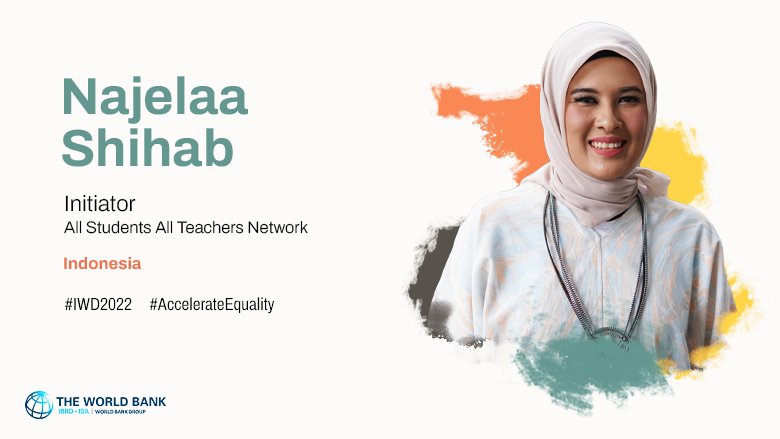I believe the betterment of education should be everyone’s mission, not just for those who work as teachers and youth who are still in a classroom, so this is why I initiated Semua Murid Semua Guru network. Based on various data, Indonesia’s education ecosystem is in a state of emergency. It is impossible to push for reform without the collaboration of multiple stakeholders, including communities, educational organizations, corporations, media, and the government. There are too many misconceptions in our education, too few scalable best practices, and to fight this, we need more agents of change – people who continue to innovate, integrating various efforts through continuous collaboration.
Education is a bridge to the future that should nurture students’ competency to solve complex issues. We are fortunate that the younger generation now has more awareness about these two issues, but educators and adults are responsible for empowering the youth’s ability to act. Becoming a great role model is always essential, but engaging in meaningful reflection together (regardless of how tough the conversation is) has proven to be one of the best ways to discover solutions about things that can happen every day. The more people see that raising a family, building a school community, and of course, developing a nation, requires contextualization and demands the involvement of all ages and genders, the higher our chances are to deal with the environmental crisis.
Climate change requires individuals that have a thorough understanding to act, be able to facilitate, and to lead changes. Education is the battleground as well as the training field where we ensure that this problem is not merely the issue of environmental activists, but a problem for everyone that is going to be solved based on scientific evidence, with empathy and broad-mindedness to our planet and the world. A special theme or subject and short-term campaign in a certain grade level won’t be enough. The sustainability values -- interlinked across disciplines, connected to our multiple roles as spiritual beings, democratic citizens, and caretakers of our biodiversity, need to be embedded in daily teaching and parenting, curriculum, and policies.
We will need more parents who believe their daughters can make it to the top. More brothers and husbands who are supporting the women in the family. And lastly, more women support women.
What can we do better to improve or accelerate gender equality in Indonesia?
Let’s start with increasing trust between multiple stakeholders and stop blaming the victims.
I’m hoping for significant improvement in addressing inequality in education. The pandemic clearly brings long-term consequences that are affecting each and every child. On the other hand, it also brings opportunities to make an important leap that will fine tune our strategies in the future. I will always be the foolish romantic who’s willing to do whatever it takes, putting students first while knowing for sure that most of the things we are working on will only bear fruit beyond our lifetime.
**The views expressed in this interview do not necessarily represent the views of the World Bank Group.

